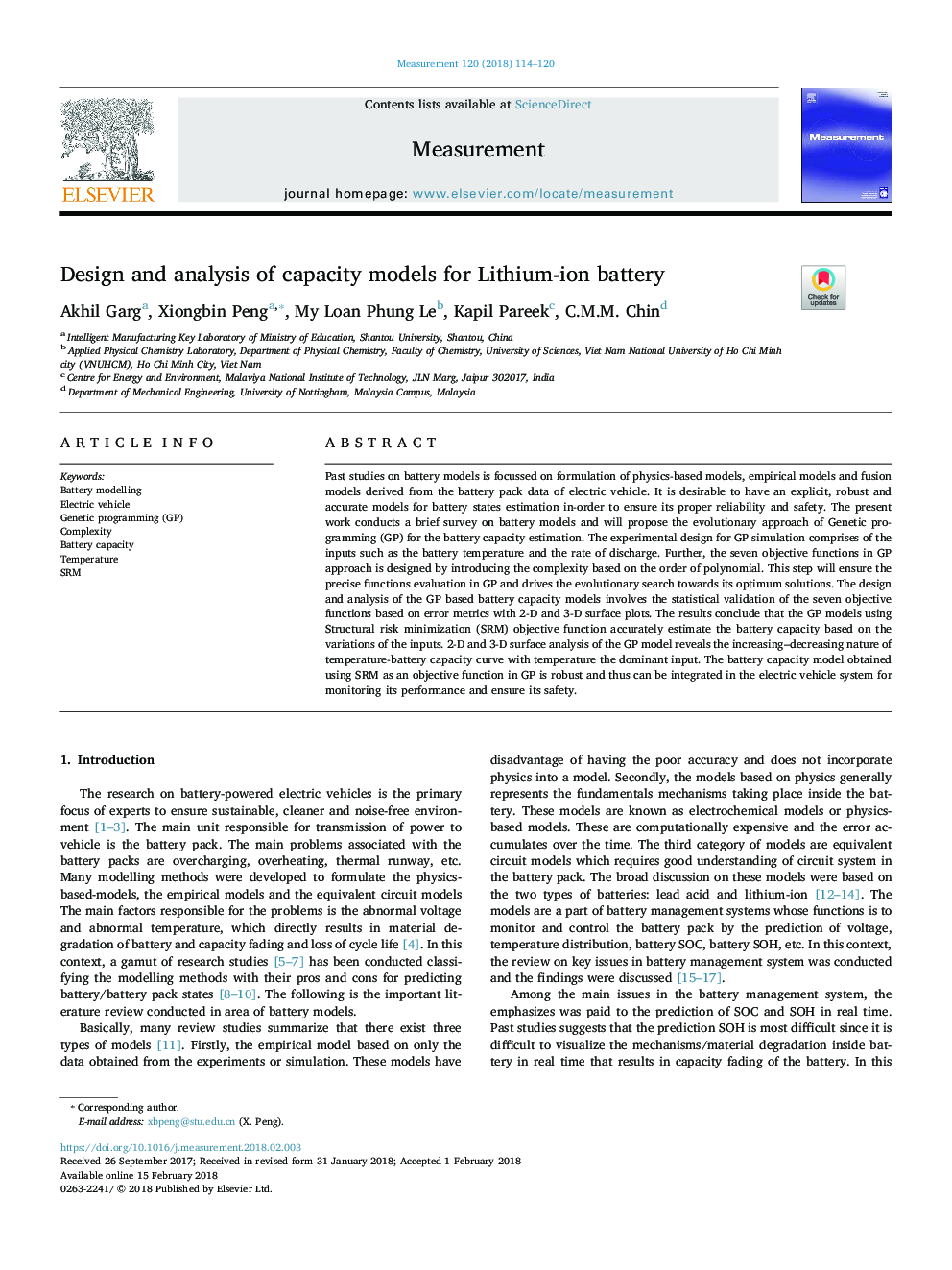| Article ID | Journal | Published Year | Pages | File Type |
|---|---|---|---|---|
| 7121451 | Measurement | 2018 | 7 Pages |
Abstract
Past studies on battery models is focussed on formulation of physics-based models, empirical models and fusion models derived from the battery pack data of electric vehicle. It is desirable to have an explicit, robust and accurate models for battery states estimation in-order to ensure its proper reliability and safety. The present work conducts a brief survey on battery models and will propose the evolutionary approach of Genetic programming (GP) for the battery capacity estimation. The experimental design for GP simulation comprises of the inputs such as the battery temperature and the rate of discharge. Further, the seven objective functions in GP approach is designed by introducing the complexity based on the order of polynomial. This step will ensure the precise functions evaluation in GP and drives the evolutionary search towards its optimum solutions. The design and analysis of the GP based battery capacity models involves the statistical validation of the seven objective functions based on error metrics with 2-D and 3-D surface plots. The results conclude that the GP models using Structural risk minimization (SRM) objective function accurately estimate the battery capacity based on the variations of the inputs. 2-D and 3-D surface analysis of the GP model reveals the increasing-decreasing nature of temperature-battery capacity curve with temperature the dominant input. The battery capacity model obtained using SRM as an objective function in GP is robust and thus can be integrated in the electric vehicle system for monitoring its performance and ensure its safety.
Keywords
Related Topics
Physical Sciences and Engineering
Engineering
Control and Systems Engineering
Authors
Akhil Garg, Xiongbin Peng, My Loan Phung Le, Kapil Pareek, C.M.M. Chin,
